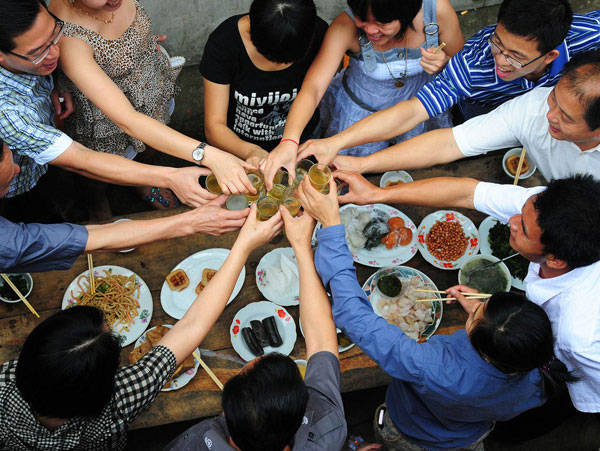
Travelling and living in China can be daunting, not only for the jet lag and the language barrier, but for first timers, guest etiquette can be a culture shock in China. Many Western guest etiquettes are not applicable, with many actions considered taboo in the West encouraged in China. Here are some of our top tips for guest etiquette in China, in handy do and don’t form!
Do’s
Do give the correct greeting. If you are meeting in a business capacity, shake hands and smile. If they are older and more senior, you may do a very slight bow from the shoulders as a sign of respect.
Do accept business cards with two hands, which is a sign of respect. Make sure you glance at it for a few seconds, as if you are studying it. Then, put it in your chest pockets or card holder, never in your back pocket.
Do slurp your soup! Unacceptable in the West, encouraged in China! It’s a sign of appreciation for the chef’s cooking!
Do take your shoes off when entering someone’s home. You may even be presented with guest slippers!
Do respect numbers. In China, the number four is considered bad luck because the pronunciation is similar to the word for death. This means that you may not find a fourth floor, or fourth room. Conversely, if you come across the number eight, you are considered lucky! If you are staying in room number 8 at your hotel, lucky you!
Do make sure you address people correctly. Address people by Mr., Mrs. etc plus the family name.
Dont’s
Don’t be late! Punctuality is a big sign of respect, make sure you on time.
Don’t point at people, especially when talking. It is considered hostile and rude.
Don’t place your chopsticks upright into your food, whilst pausing when eating. This resembles incense, which is used when praying for the dead.
Don’t tip for everything, which is very unusual for Americans. Tipping is not a necessity in China, except for exceptional service.
Don’t be surprised if you finish your plate of food and your host refills it! If you are full, leave some food on your plate to honour the generosity of your host.
Don’t enter the kitchen or the bedroom of your host unless invited too. These are private to the host.
Interested in discovering more about Chinese cultural nuances? Discover why email isn’t used in China in our blog here.























